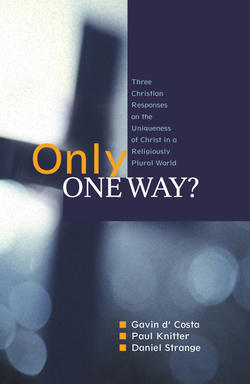Читать книгу Only One Way? - Gavin D'Costa - Страница 13
На сайте Литреса книга снята с продажи.
The Middle Ages
ОглавлениеThe age of discovery also brought on a development in doctrinal theology with the discovery of the ‘new world’ with millions of women and men who had never heard of the gospel through no fault of their own. It was difficult to rely on Thomas Aquinas’ (thirteenth-century) speculation that, were there to be a young boy brought up by wolves (and who thus had never heard the gospel), God’s justice would require that an angel would visit him or that he would have interior revelation. The evidence was generally that angels had not visited non-Christian peoples en masse and private interior revelation in such circumstances is unrecorded. New thinking was required in a new context. But note the continuity of dogmatic focus on the necessity of Christ and the Church for salvation.
Two sixteenth-century Dominicans of Salamanca, Francisco de Vitoria and Domingo de Soto, laid the seeds for later Catholic theology on this topic in two significant ways. Vitoria was outraged by the behaviour of some of the Spanish missionary conquistadores in South America and argued that unless the gospel was presented properly, without violence, threat, and coercion, both before and after its preaching, the hearers were under no obligation to accept it and could not be enslaved. This was a very radical stance, but Vitoria was not the only one to develop this insight. Bartolomé de Las Casas was also savagely critical of the Spanish military and political authorities for their clear exploitative ambitions and disregard for a basically peace-loving civilization reduced to shreds through Spain’s violent encomienda, whereby entire communities were forcibly reduced to slavery by being entrusted to Spanish conquistadores whom they were required to pay for their tuition in the Spanish language and instruction in the Catholic faith. Much of this socio-political sensitivity would mark modern Catholicism’s attention to these matters in mission work. Nevertheless, Catholics should feel shame at the activities of some Catholic missionaries in history, although that should not obscure the many blessings and benefits others brought to millions of people and various cultures. I would not be a Catholic were it not for the sixteenth-century Portuguese missionaries. Second, De Soto argued that implicit faith in Christ would suffice for those ‘who had never heard the gospel’ but who had followed the natural law evident in creation and through the use of their reason. This meant that the necessity of the Church for salvation was contextualized, while nevertheless still being viewed as binding. This position, with various qualifications, remains the official Catholic position today. Not all Catholics at the time shared these opinions.
